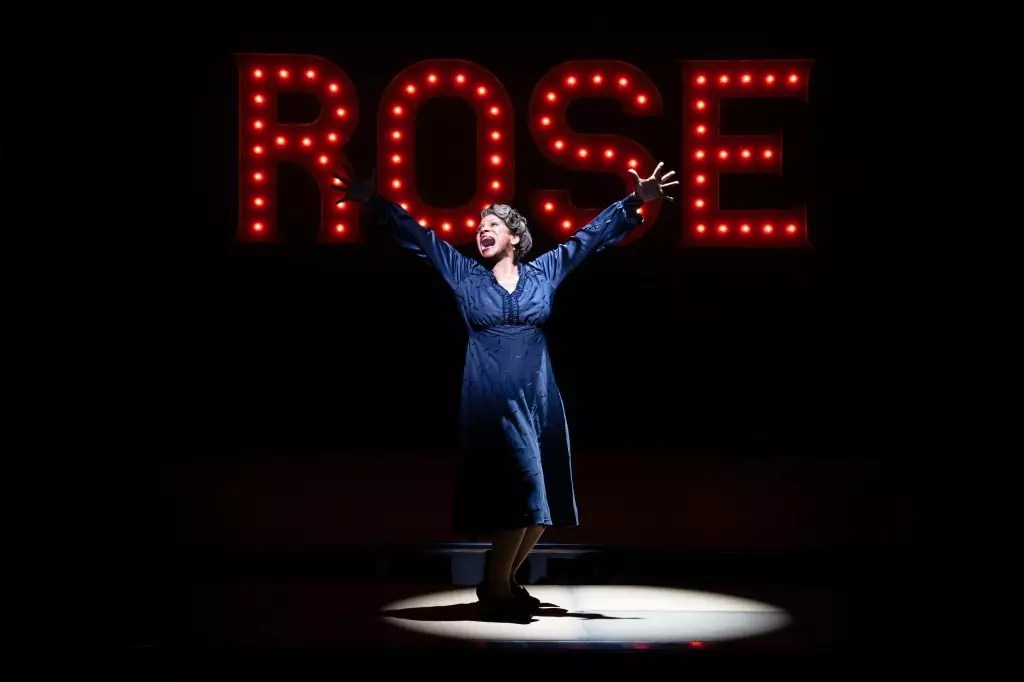Broadway, the cultural heart of American theater, experienced a remarkable surge in ticket sales during the holiday season, yet not all productions basked in the glow of this festive financial windfall. The box office figures for the week ending December 29 revealed a striking contrast between the successes of many shows and the unfortunate plight of the revival of “Gypsy,” starring the acclaimed Audra McDonald.
The holiday week traditionally serves as a peak period for Broadway, and this year was no exception. The total gross for all 33 productions reached an impressive $55.8 million, marking a phenomenal 26% increase over the previous week and a 23% jump from the same timeframe in the preceding year. This year’s attendance figures were equally encouraging, with 306,180 theatergoers—the highest since the pandemic disrupted the scene— filling nearly 97% of available seats, showcasing a burgeoning enthusiasm for live theater.
Show titles such as “Wicked” and “The Lion King” contributed significantly to the revenue, with “Wicked” surpassing $5 million in weekly gross. Other high performers included “Aladdin,” “MJ,” and “The Great Gatsby,” reinforcing the notion that Broadway is recovering strongly from the pandemic’s impact.
Amid the financial triumphs, the revival of “Gypsy” faced adversities that contrasted starkly with the overall success of its counterparts. The production suffered cancellations of seven out of eight performances during this lucrative week due to a virulent illness circulating through the cast and crew. The missed opportunities were particularly painful as the show had just transitioned into its post-preview phase, potentially gathering momentum during what should have been a pivotal week.
Audra McDonald took to social media to communicate the challenges faced by the cast, expressing empathy towards audience members who might have experienced a different version of their anticipated performance. Her concern, however, did not translate into ticket sales, as “Gypsy” grossed a meager $280,095 from its lone uncanceled performance, a staggering decrease of over $1.2 million from the preceding week.
The Broader Implications for the Broadway Community
The juxtaposition between “Gypsy’s” struggles and the vitality of other productions raises questions about the resilience of Broadway in the face of unforeseen challenges. While a single production may falter, the community as a whole demonstrates remarkable prowess in attracting audiences. The increase in ticket prices, averaging $182.32, indicates a willing consumer base ready to invest in theater experiences, further solidifying Broadway’s status in the entertainment landscape.
However, the situation also highlights the vulnerabilities in theater productions, particularly those that rely heavily on a singular performance cast. With understudies often not prepared for sudden changes, the industry must find solutions to bolster resilience, ensuring that sickness or unexpected events do not lead to significant financial loss.
Breaking Records and Setting Trends
While “Gypsy” grappled with adversity, numerous productions celebrated record-breaking performances. “Chicago,” the illustrious musical revival, achieved its highest gross ever for an eight-performance week, underscoring the classic show’s continued appeal. Similarly, “The Outsiders” notched its best week to date, a testament to the ever-evolving tastes of theater audiences. The establishment of new box office records this holiday season signifies an invigorated interest in live performances, potentially leading to a long-term rise in theater attendance.
Additionally, new entries like “All In: Comedy About Love” and “Maybe Happy Ending” captivated audiences and raked in impressive figures, illustrating the potential for innovation within Broadway’s offerings. As productions experiment with themes and formats, the diversity of experiences available enriches the Broadway tapestry.
Broadway’s holiday box office bonanza paints a vibrant picture of a community eager to reclaim its place as a leading entertainment destination. Yet, the challenges faced by specific productions like “Gypsy” remind us that the road to recovery is laden with uncertainties. As the industry navigates this post-pandemic landscape, it is imperative to find ways to bolster resilience and adapt to the unpredictable nature of live performances.
With audiences returning in droves and a diverse array of productions driving ticket sales, the future for Broadway holds promise. As adaptations take place and the community learns from its hurdles, the stage remains set for continued growth and success in the years to come, reaffirming Broadway not merely as a venue of entertainment, but a cherished cultural significance.


Leave a Reply